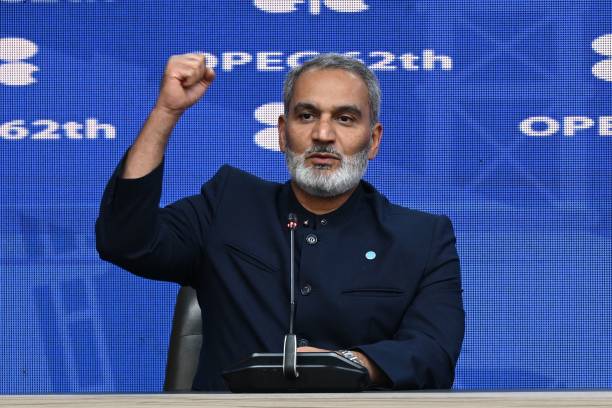Article Summary
- OPEC Secretary General, Haitham Al Ghais, has said that the world needs more oil to enable economic prosperity.
- Al Ghais highlighted the Dangote refinery as one of the major downstream oil investments made by an OPEC member country. He also said there is a need for more refineries with petrochemical integration to be built to meet demand.
- The calls for zero investments in the oil industry have stoked uncertainty and volatility to the detriment of producers, consumers, and ultimately global energy security.
The Secretary General of the Organization of Petroleum Exporting Countries (OPEC), Haitham Al Ghais, has said that the world needs more oil to fuel economic growth. He said this during a recent interview with S&P Global Commodity Insights.
According to him, OPEC’s data-driven outlooks envisage the need for more oil to fuel global economic growth and prosperity in the decades to come, so it is troubling to hear calls to stop investing in oil. He said:
- “Our energy future is an ‘and’ question, not an ‘or’ question. The world desperately needs investments in all energies and in all technologies to help reduce emissions. It is vital that we get our energy future right: securing reliable and affordable energy for all while reducing emissions. This can only be achieved through international cooperation based on multilateralism and constructive dialogue.
- “OPEC member countries continue to invest heavily in the oil industry, especially in the downstream sector. Recent examples include ADNOC’s Crude Flexibility Project at the Al-Ruwais refinery in the UAE, the Dangote refinery in Nigeria, and the Clean Fuels Project and Al-Zour refinery in Kuwait. Despite all of this, oil demand will grow faster than the net refining capacity additions, and that may lead to further petroleum product shortages.”
Refining capacity needs petrochemical integration
While highlighting increased downstream investments in OPEC member countries, Al Ghais said it is important for countries to add value to refineries by integrating petrochemicals. According to him, stakeholders should recognize that the future of refining capacity will be geared more towards building refineries that are more complex.
So, it is no longer just about extracting the margin through the complexity of refining crude but also by integrating petrochemicals. This is because there is a growing trend to integrate the petrochemical business with the refinery to realize maximum value.
Low oil investments and their repercussions on developing economies
For Al Ghais, the world needs more oil, not less. He told S&P Global that the chronic underinvestment the oil sector has been witnessing is truly a global challenge, manifesting itself in production constraints, shrinking spare capacity, and reduced refinery output. He said:
- “It is a challenge that we cannot keep procrastinating on and leave for tomorrow. We continue to face efforts to create a policy rulebook that stigmatizes hydrocarbons and seeks to divert much-needed investment away from the industry, including movements by financial institutions to limit and stringently control how money is invested in oil under environmental, social, and governance.
- “This situation has stoked uncertainty and volatility to the detriment of producers and consumers and ultimately global energy security. It is also disheartening and particularly impactful on developing countries with oil and gas resources, many of whom rely on revenues from these commodities to build their economies and social infrastructure.”
More energy access, fewer emissions
Nairametrics had previously reported that COP 28 President and UAE Minister of Industry and Advanced Technology, Dr. Sultan Al Jaber, had called on global stakeholders to work towards reducing emissions, not energy access.
According to Dr. Al Jaber, the world can build a new economic development model based on putting an end to emissions while breathing new life into economic growth. He maintained that while the world still uses hydrocarbons, stakeholders must do everything in their power to reduce and eventually eliminate the carbon intensity of that energy.















